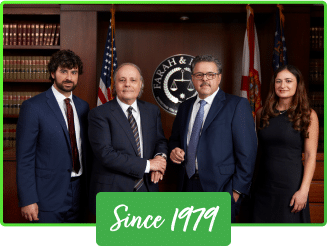Ocala Social Security Disability Lawyers
You may qualify for Social Security Disability Insurance (SSDI) benefits if you can’t work because of a severe medical condition. At Farah & Farah, our Ocala Social Security Disability attorneys have over four decades of experience helping clients like you navigate the application process and get the benefits they deserve.
FREE CASE REVIEW
Home > Ocala Personal Injury Lawyers > Ocala Social Security Disability Lawyers
Table of Contents
Why You’ll Want To Work With Farah & Farah on Your Claim for SSDI Benefits
What Benefits Are Available Through Social Security?
What Qualifies as a Disability Under the Social Security Act?
How Do I Qualify for SSDI Benefits in Florida?
Farah & Farah Can Help You File an Appeal if Your Claim for SSDI Benefits Is Denied
Call Our Social Security Disability Attorneys in Ocala for Help Getting Benefits
Social Security Disability Insurance (SSDI) benefits can help when you’ve been seriously injured or diagnosed with a debilitating medical condition. You can set yourself up to successfully recover disability benefits by turning to the Ocala Social Security Disability lawyers at Farah & Farah for help.
Since 1979, our award-winning trial attorneys have passionately advocated for injured workers and families throughout Florida. Our client-centric approach to litigation and collaborative efforts have helped us recover over $2 billion in life-changing benefits packages, settlements, and jury awards.
Whether you’re about to file for benefits or need to appeal a recent denial, Farah & Farah can help. Call our law office in Ocala, Florida, at (352) 205-4023 to learn more. Your initial case evaluation is free.
Why You'll Want To Work With Farah & Farah on Your Claim for SSDI Benefits
Our skilled team of personal injury lawyers in Ocala has over 40 years of experience helping clients successfully work through the disability claims process. We’ll use our experience to help you avoid common mistakes that often lead to denials on initial applications and guide you through the disability appeal process if you’re fighting a denial.
Here’s why Farah & Farah is consistently the choice of accident victims, injured workers, and grieving families to help them fight for compensation:
- We’re local, meaning we genuinely understand our Ocala clients’ needs.
- We embrace our homegrown roots by remaining actively involved in the local community.
- Asking for our help comes at absolutely no risk because we don’t get paid unless we help you get SSDI benefits.
- You can count on us for the honest, transparent, and dignified legal representation you deserve.
- Our client-focused approach means you’re always in communication with your legal team about the status of your claim.
- We utilize our skilled legal team’s diverse experience and knowledge by focusing on a collaborative approach to litigation.
- Hundreds of reviews and testimonials highlight the considerable benefits of working with the Farah & Farah team.
Results matter, and ours speak volumes. Our top-rated litigators have won over $2 billion for clients like you. Now we’re here to fight for you. Contact our law office in Ocala, Florida, for your free consultation.
Our firm wins more than the national average in recovering social security benefits for clients that were initially denied.

What Benefits Are Available Through Social Security?
The Social Security Administration (SSA) oversees two benefits programs: Supplemental Security Income (SSI) and Social Security Disability Insurance.
Both programs are funded by federal income tax. If you pay federal taxes, you may qualify for benefits when you retire or become disabled. In some cases, children or spouses of qualifying workers may also qualify for Social Security benefits.
Supplemental Security Income
Supplemental Security Income provides income assistance to elderly and disabled Americans. As long as you’ve paid into the Social Security system, you can qualify for supplemental income benefits when you turn 65 or become disabled.
The benefits paid are directly based on your contributions to the Social Security system as well as other wages earned and assets available to you upon application.
Social Security Disability Insurance
Social Security Disability Insurance is only available to workers diagnosed with a qualifying disability that substantially interferes with their ability to work. Your income must generally be lower than $1,470 a month to qualify.
You must have paid into the Social Security system and accumulated sufficient work credits to receive benefits. Work credits are based on the amount of time you’ve worked and the wages you’ve earned. For 2023, one work credit is earned for every $1,640 in wages. Typically, you will need 40 work credits, 20 of which have been earned in the past decade, to qualify for SSDI benefits.
Disabled Adult Child (DAC) Benefits
SSDI benefits can also be paid to disabled adult children. A Disabled Adult Child is an unmarried adult child who is at least 18 years old and suffered a qualifying disability before the age of 22.
DAC benefits are based on the parent’s Social Security record. So, the DAC is not required to have ever worked or contributed to the Social Security program.
Disabled Widow or Widower Benefits (DWB)
When a worker dies, their surviving spouse or ex-spouse may qualify for DWB benefits under the worker’s Social Security record. To qualify, the spouse or ex-spouse must be at least 50 but not 60 years old and be diagnosed with a qualifying disability within 7 years of the worker’s death.
What Qualifies as a Disability Under the Social Security Act?
The Social Security Administration will only approve an application for SSDI benefits if you have been diagnosed with a qualifying disability.
Generally speaking, this can include any physical or psychological condition that substantially interferes with your ability to perform basic work-related tasks for at least 12 months or is expected to result in death.
What Conditions Are Considered Qualified Disabilities?
The SSA has a list of conditions that are generally recognized as qualifying disabilities. Examples of qualifying disabilities include, but are not limited to:
- Amputation
- Amyotrophic lateral sclerosis (ALS)
- Asthma
- Blindness
- Burns
- Cerebral palsy
- Chronic heart failure
- Chronic kidney disease
- Chronic liver disease
- Cystic fibrosis
- Depression
- Epilepsy
- Hearing loss
- Loss of speech
- Muscular dystrophy
- Nonhealing complex fractures
- Pathologic fractures
- Parkinsonian syndrome
- Transplant
- Traumatic brain injury
- Spinal cord injury
Your medical condition does not have to be listed to qualify for SSDI benefits. However, you will have to provide substantial evidence to convince the SSA that your condition is severe and should qualify you for SSDI benefits.
Our Social Security Disability lawyers in Ocala can help you obtain the necessary medical records, work records, and expert testimony to make a compelling case.
$2+ BILLION IN RESULTS

How Do I Qualify for SSDI Benefits in Florida?
Many factors will be considered when you apply for Social Security Disability Insurance (SSDI) benefits.
- What’s your current income status? SSDI benefits are reserved for individuals who are unable to work or can only work in a very limited capacity. If you earn more than $1,470 a month, the SSA will probably deny your request for benefits.
- Is your medical condition severe? You must be able to demonstrate that your medical condition is so debilitating that it has prevented you from performing basic work-related activities for at least 12 months.
- Is your medical condition recognized as a qualifying disability? If not, you will need to convince the SSA that your condition should be recognized as a qualifying condition.
- Do you have sufficient work credits? You must be able to demonstrate that you’ve accumulated at least 40 work credits, 20 of which were earned in the last 10 years. You may not qualify for SSDI benefits if you have insufficient credit.
- Can you work? Just because you have a qualifying disability doesn’t mean you will automatically qualify for SSDI benefits. If the SSA believes that you can work in some capacity—even in a different role—then it may reject your application for benefits.
You can apply for benefits online at ssa.gov, by phone, or by visiting your local Social Security office in Ocala, Florida.
Documents You’ll Need When Applying for Disability
When you apply, you will need to have the following information and documents available:
- Social Security number
- Dates of marriages and divorces
- Your spouse’s name and date of birth
- Your children’s names and dates of birth
- Medical records
- Work history detailing the past 15 years of employment
- Wage and earning history for the past two years
- Bank account information if you want SSDI benefits direct deposited
At Farah & Farah, our Florida disability lawyers have spent decades helping clients file for SSDI benefits, navigate tough appeals, and fight for much-needed compensation. Put our experience to work for you by calling us for help at (352) 205-4023 today.
Farah & Farah Can Help You File an Appeal if Your Claim for SSDI Benefits Is Denied
According to the SSA, roughly two-thirds of all claims for SSDI benefits are initially denied. This typically happens because applicants make mistakes on the application, forget to include the necessary documentation or provide insufficient evidence of a disability.
However, don’t give up hope just because your claim is denied. You have the right to appeal. There are four different levels of appeal in the SSDI application process.
Request for Reconsideration
If your application for SSDI benefits is initially denied, you will have 60 days to submit a Request for Reconsideration. If you miss this deadline, there is an exception that allows you to submit a good cause letter to the SSA. You can submit your request online or mail form SSA-561-U2 to your local SSA office in Ocala, Florida.
During this stage of the appeals process, your claim will be reviewed by a claims examiner and a medical consultant who were not involved in the initial decision-making process. Your claim can either be approved or denied again.
Administrative Law Judge (ALJ) Hearing
If your claim is denied, you can request a hearing before an Administrative Law Judge in Ocala, Florida. During this hearing, you will have the opportunity to present the judge with additional evidence, facts, documents, and testimony to support your initial application. Upon review, the ALJ can either approve your application for benefits or deny it again.
Appeals Council Review
If the ALJ denies your claim, you can request a review by the Appeals Council. Typically, the Appeals Council will only grant a review if it believes that the ALJ made an error in assessing your claim. The Appeals Council, upon review, can decide the claim itself or remand the case back to the ALJ.
US District Court Review
If the Appeals Council denies your claim, you will have one final opportunity to appeal the decision. This final appeal will involve bringing a lawsuit against the Social Security Administration in the US District Court—Middle District of Florida in Ocala.
Appeals are more complicated than the initial claims process, so it is important to enlist the help of an Ocala Social Security Disability lawyer with extensive experience handling SSDI appeals.
Farah & Farah’s experienced legal team will carefully review your initial application for benefits, consider the SSA’s reason(s) for denial, and begin to compile additional information and evidence to help your claim get approved during the appeals process.
SSDI FAQs
You have questions about Social Security Disability Insurance and the process involved in obtaining benefits. Farah & Farah has the answers you need.
How Much Does It Cost To Hire a Social Security Disability Lawyer in Ocala, Florida?
Hiring an Ocala disability attorney requires no out-of-pocket cost. We work on contingency, meaning you only pay if we help you secure Social Security Disability Insurance benefits. Under Florida state law, attorney fees are capped at specified percentage of your past-due benefits.
Do I Need a Lawyer To Get Disability Benefits?
No, you can file a claim for disability benefits in Ocala on your own. However, there is a very high denial rate.
When you hire an attorney, you take the stress and pressure of preparing your application off your shoulders and put an experienced legal advocate on the case. This can give you peace of mind and help you obtain much-needed benefits sooner rather than later.
How Long Does It Take To Get a Decision on My SSDI Claim?
According to the Social Security Administration, deciding on an SSDI application typically takes three to five months. Of course, the process can be longer if the SSA needs additional information or documents.
Is There a Waiting Period After My SSDI Claim Is Approved?
Yes, with limited exceptions, you will not receive your first SSDI benefits check until five months after your claim is initially approved.
Can I Continue to Get SSDI Benefits if I Go Back to Work?
Yes, it is possible to receive SSDI benefits after returning to work. The SSA has a Trial Work Period (TWP) that gives nine months in a 5-year rolling period to work and test the waters without jeopardizing your benefits.
Call Our Social Security Disability Attorneys in Ocala for Help Getting Benefits
At Farah & Farah, we’ve been advocating for injured workers and families in Florida since 1979. Our client-centric focus and commitment to collaboration have helped us win over $1 billion in benefits, settlements, and jury awards.
We’re ready to help you get the SSDI benefits you need and deserve. Experience matters in these cases, so put ours to work for you. Contact our Ocala, Florida, law office at (352) 205-4023 to get started. Your initial case evaluation is free.
4201 E Silver Springs Blvd
Ocala, FL 34470














FREE CASE REVIEW

